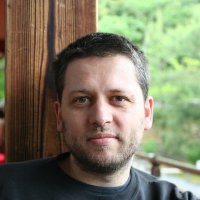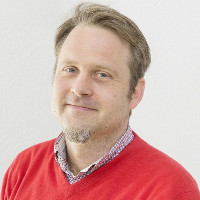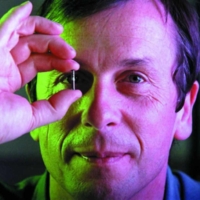
Laurent Perron
Technical leader of the Operations Research team in Google
Wednesday 23rd, 14.30 - 15.30, Main Room
Laurent Perron is Technical Leader of the Operation Research team in Google since 2008. From 1992 to 1996 he obtained his Master Degree in Computer Science from the Ecole Normale Supérieure, Paris, France in 1995. He received his Ph.D. in Computer Science from the same institute in 1997. His studies focused on the development of a kernel language for the implementation of concurrent constraint languages. Before moving to Google, during the decade 1997-2007, he was developer, team leader and architect at ILOG in the Optimization Department, where he was first staff developer and implemented ILOG Parallel Solver (released in 1999). In 2000, he became ILOG Concert Technology team leader and rewrote the product completely in two phases. In the years 2003-2006 he was ILOG Solver team leader and Principal Architect. In 2006, when ILOG Solver, ILOG IIM and ILOG Scheduler team were merged, he became architect for the whole product. For his outstanding performance, in 2007 he was rewarded with the title of Chief Architect of the Optimization Department.
His main research topics involve Constraint Programming and Optimization Problems.
Title: Optimization at Google
Google is a big company, with plenty of resources to optimize, and lots of talented engineers. This translates into many interesting challenges for the Operations Research team. We will explore some of those in this presentation.

Kristian Kersting
Head of the "Statistical Relational Activity Mining" Group, Fraunhofer IAIS, Technical University of Dortmund
Thursday 24th, 09.00 - 10.00, Main Room
Kristian Kersting is an Associate Professor in the Computer Science Department at the Technical University of Dortmund, Germany.
He received his Ph.D. from the University of Freiburg, Germany, in 2006 and moved to the Fraunhofer IAIS and the University of Bonn using a Fraunhofer ATTRACT Fellowship in 2008 after a PostDoc at MIT, USA. Before moving to the TU Dortmund University in 2013, he was appointed Assistant Professor for Spatio-Temporal Patterns in Agriculture at the University of Bonn in 2012 as well as an Adjunct Assistant Professor at the Medical School of the Wake Forest University, USA.
His main research interests are data mining, machine learning, and statistical relational artificial intelligence. He has published more than 130 peer-reviewed papers and received the ECCAI Dissertation Award 2006, the ECML Best Student Paper Award in 2006, the ACM SIGSPATIAL GIS Best Poster Award in 2011, and the AAAI-2013 Outstanding PC Member Award.
He serves regularly as area chair or senior program committee member for several top ML, AI, and DM conference, and cochaired SRL and StarAI, among other international workshops. In 2013, he is cochairing ECMLPKDD, the European machine learning and data mining conference. Currently he is an associate editor of MLJ, DAMI, JAIR, and AIJ.
Title: The Democratization of Optimization
Democratizing data does not mean dropping a huge spreadsheet on everyone’s desk and saying, “good luck”, it means to make data mining, machine learning and AI methods useable in such a way that people can easily instruct machines to have a "look" at the data and help them to understand and act on it.
A promising approach is the declarative “Model + Solver” paradigm that was and is behind many revolutions in computing in general: instead of outlining how a solution should be computed, we specify what the problem is using some modeling language and solve it using highly optimized solvers. Analyzing data, however, involves more than just the optimization of an objective function subject to constraints. Before optimization can take place, a large effort is needed to not only formulate the model but also to put it in the right form. We must often build models before we know what individuals are in the domain and, therefore, before we know what variables and constraints exist. Hence modeling should facilitate the formulation of abstract, general knowledge. This not only concerns the syntactic form of the model but also needs to take into account the abilities of the solvers; the efficiency with which the problem can be solved is to a large extent determined by the way the model is formalized. In this talk, I shall review our recent efforts on relational linear programming. It can reveal the rich logical structure underlying many AI and data mining problems both at the formulation as well as the optimization level. Ultimately, it will make optimization several times easier and more powerful than current approaches and is a step towards achieving the grand challenge of automated programming as sketched by Jim Gray in his Turing Award Lecture.
Joint work with Martin Mladenov and Pavel Tokmakov and based on previous joint works together with Babak Ahmadi, Amir Globerson, Martin Grohe, Fabian Hadiji, Marion Neumann, Aziz Erkal Selman, and many more.

Oren Etzioni
Director of the Allen Institute for Artificial Intelligence
Friday 25th, 09.00 - 10.00, Main Room
Dr. Oren Etzioni is Chief Executive Officer of the Allen Institute for Artificial Intelligence. He has been a Professor at the University of Washington's Computer Science department starting in 1991, receiving several awards including GeekWire's Hire of the Year (2014), Seattle's Geek of the Year (2013), the Robert Engelmore Memorial Award (2007), the IJCAI Distinguished Paper Award (2005), AAAI Fellow (2003), and a National Young Investigator Award (1993). He was also the founder or co-founder of several companies including Farecast (sold to Microsoft in 2008) and Decide (sold to eBay in 2013), and the author of over 100 technical papers that have garnered over 22,000 citations.
The goal of Oren's research is to solve fundamental problems in AI, particularly the automatic learning of knowledge from text. Oren received his Ph.D. from Carnegie Mellon University in 1991, and his B.A. from Harvard in 1986.
Title: The Future of AI
How should we build on the success of Machine Learning, and most recently of Deep Learning, over the coming decades? Does AI research create threats for society, or will it be a source of beneficial technology? My talk will address these issues by describing the projects and perspective at the Allen Institute for AI (www.allenai.org) in Seattle.
Kevin Warwick
Deputy Vice Chancellor (Research) at Coventry University, England
Friday 25th, 15.30 - 16.30, Main Room
Kevin Warwick is Deputy Vice Chancellor (Research) at Coventry University, England, where he is responsible for the University’s research portfolio. His own main research areas are artificial intelligence, biomedical systems, robotics and cyborgs. Due to his research which involved himself as a self-experimenter he is frequently referred to as the world’s first Cyborg. Kevin was born in Coventry, UK and left school to join British Telecom, at the age of 16. At 22 he took his first degree at Aston University, followed by a PhD and research post at Imperial College, London. He subsequently held positions at Oxford, Newcastle, Warwick and Reading Universities before joining Coventry.
Kevin is a Chartered Engineer who has published well over 600 research papers and his experiments into implant technology led to him being featured as the cover story on the US magazine, ‘Wired’. He has been awarded higher doctorates (DSc) both by Imperial College and the Czech Academy of Sciences, Prague. Kevin has also been awarded 8 Honorary Doctorates by UK Universities and an Honorary Doctorate from Saints Cyril & Methodius University, Skopje. He was presented with The Future of Health Technology Award in MIT, was made an Honorary Member of the Academy of Sciences, St. Petersburg, and received The IEE Senior Achievement Medal, the IET Mountbatten Medal and in 2011 the Ellison-Cliffe Medal from the Royal Society of Medicine. In 2000 Kevin presented the Royal Institution Christmas Lectures, entitled “The Rise of the Robots”.
Title: Turing’s Imitation Game
Turing’s Imitation Game (also known as the Turing test) involves trying to tell the difference, in conversation, between a human and a machine? Results from practical Turing Tests involving both machines and hidden humans are used to show how some of the top philosophers and computer scientists have made misidentifications when acting as interrogators. Actual examples will be given of machines performing very well and fooling interrogators. In the presentation there will be the opportunity to try the test for yourself and see if you can spot the difference.
But there is a lot more to the Turing Test than meets the eye. In terms of communication, it’s not just about how well machines can perform, it also shows how humans are sometimes not as good as we may think. Often humans are quirky or difficult and can themselves be identified as being machines. If you don’t know much about the Turing Test then all will be explained here. If you think you ‘understand’ all about it then hopefully this will make you think again by bringing you up to date with the very latest in machine performance.
Attendance Warning: Machines that think are preferred to humans with closed minds.

